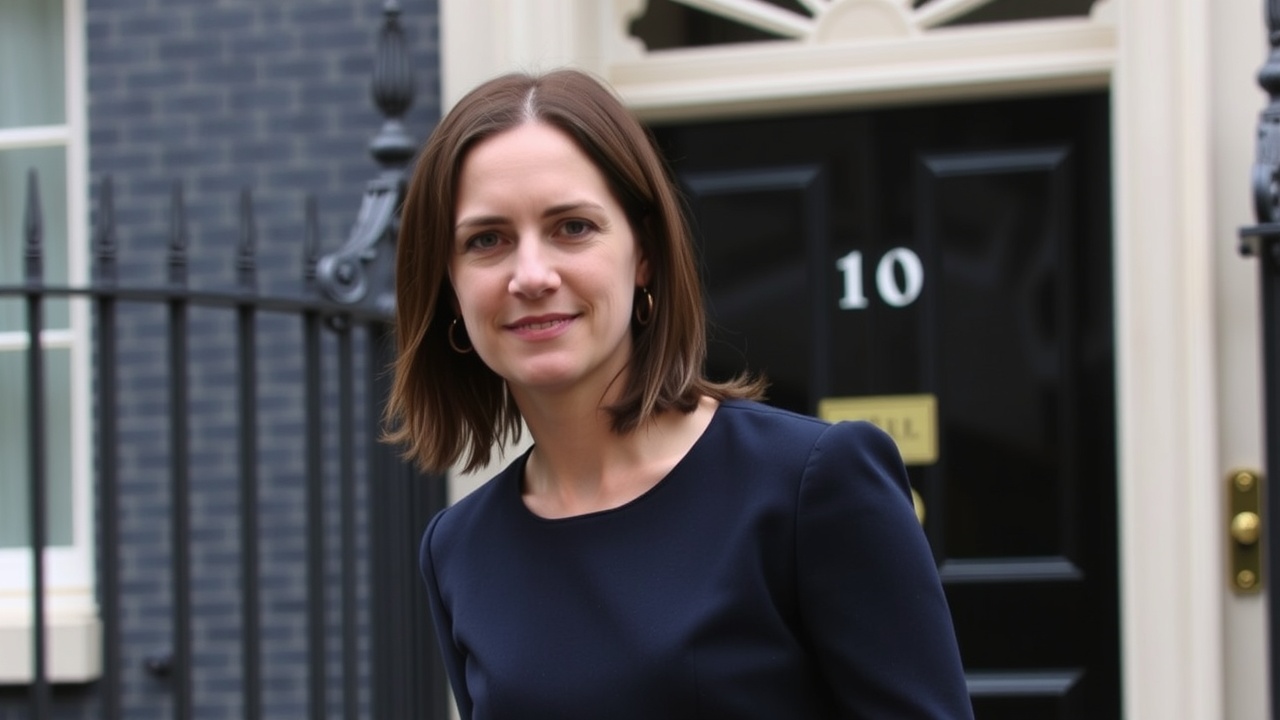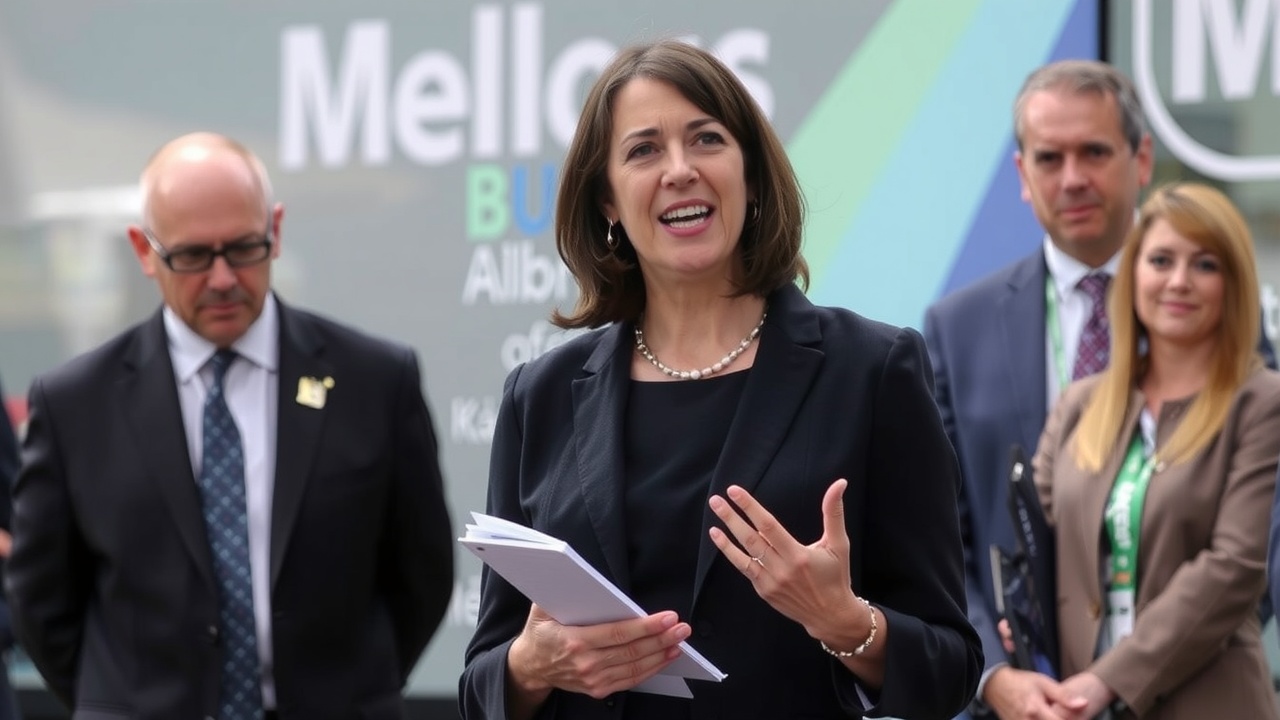
Experts worry some of them may appear in the Autumn Budget as information about a memo Rayner sent to Reeves proposing a £44 billion tax raid on investors and savers comes to light
Details of a confidential memo that deputy prime minister Angela Rayner sent to chancellor Rachel Reeves proposing tax increases of up to £4 billion have been described as a "bitter blow for savers and investors" should the government ever decide to enact them.
The Telegraph reported that the memorandum was sent before this year's Spring Statement. It suggested eight tax increases, including adjustments to dividend taxes and the restoration of the pension lifetime allowance.
In the end, Reeves announced welfare cuts that were anticipated to save £5 billion annually rather than implementing any of Rayner's suggestions.
Experts worry that some ministers will try to get the tax increases into the Autumn Budget, and that they "may remain part of the debate." Concerns regarding changes to the cash ISA that could have a significant effect on savers are accompanied by speculation about tax increases.
We examine what was in the memo, whether the proposals will be introduced, and the potential impact on investors and savers.
What was contained in the tax memo of Angela Rayner?
The Telegraph claims that Rayner's memo advocated for a fresh tax raid on banks, investors, and savers.
The Rayners team sent the Treasury a two-and-a-half-page memo titled "Alternative proposals for raising revenue" in the middle of March.
It suggested eliminating the inheritance tax (IHT) exemption for Aim shares and enacting two measures to raise taxes on individuals who purchase and sell real estate through businesses that can evade stamp duty.
The Telegraph calculated that they could raise up to 2 billion annually by eliminating the IHT relief on Aim shares and closing the commercial property stamp duty loophole.
Reeves has already targeted Aim shares. The chancellor declared in last year's Autumn Budget that Aim shares would no longer be exempt from IHT and that the tax relief would be lowered to 50%, thereby instituting a 20% IHT rate. This will begin in April 2026.
Rayner further demanded that the corporation tax rate on banks be raised and that the pensions lifetime allowance be reinstated, which could generate up to 800 million in revenue annually.
An excerpt from the memo stated: "The pensions lifetime allowance was abolished in March 2023, as announced by then-Chancellor Jeremy Hunt. Before high tax rates were implemented, the lifetime allowance was the maximum amount that a person's private pension could reach. Restoring the lifetime allowance to roughly its prior level of 1,073,100 would be one simple option.
Dividends were the subject of two additional modifications. In the memo, Rayner suggested raising the tax rates that the wealthiest investors pay on dividends and eliminating the 500 tax-free dividend allowance.
The eighth tax increase proposal focused on freezing the income tax threshold at which the higher rate becomes effective. Until April 2028, the 45 percent threshold is set at 125,140; however, Rayner contends that prolonging the freeze "could raise revenue and would be consistent with the manifesto".
In what ways might these tax increases impact investors and savers?
Experts predict that investors and pension savers may be severely impacted by the dividend tax changes and the reintroduction of the pension lifetime allowance. Any IHT benefits would also be totally erased for those who invested in Aim.
According to Sarah Coles, head of personal finance at Hargreaves Lansdown, "the dividend allowance has already been drastically reduced for investors, going from 2,000 in April 2023 to just 500 today. Meanwhile, more people are now paying higher rates of this tax due to frozen income tax thresholds, and those rates were raised in April 2022.
It means that you can start accruing dividend tax debt without having a sizable portfolio outside of ISAs and pensions.
"Many people are already reassessing the role of these investments in their portfolio," she continues, referring to the reduction in IHT relief on Aim investments that will take effect in April of next year. Eliminating the relief completely would make matters worse.
According to Jason Hollands, managing director of wealth management firm Evelyn Partners, "entrepreneurial business founders themselves would suffer more harm." Founders have opted to list on Aim instead of the main London Stock Exchange primarily because they can receive IHT relief on their business interests.
"I would anticipate more business owners to leave the UK and move to more alluring tax jurisdictions if that relief were completely removed in a tax grab.
Hollands issues a warning regarding the pensions lifetime allowance: "Restoring the lifetime allowance in its previous form would be a profoundly regressive move, resulting in a debilitating impact on public trust in the pensions system, which has been beset by constant interference."
Will Rayner's proposed tax increases be implemented?
There are worries that the memo proposals in Reeves' Spring Statement might be discussed within government and possibly introduced in the future, even though she did not implement any of them.
The tax increases "would be a bitter blow for savers and investors," according to Coles.
We are accustomed to private memos making headlines, so Westminster tussles are nothing new, she remarks. However, there is a chance that these topics will continue to be discussed even though there is no assurance that any of this will ever be implemented.
Although they might appear to be recommendations that only the very wealthy should consider, the effects could be much more extensive. To make this a reality, the UK must establish an investment culture and have the appropriate incentives in place. These goals would be completely undermined by these changes, and some of them run the risk of discouraging people from beginning at all.
The memo is referred to by Hollands as "a tax-hikers wish list, that would have very negative consequences if adopted".
"Angela Rayner's leaked memo will undoubtedly encourage fresh speculation about where the government might look for additional revenues if the economy doesn't deliver and her limited fiscal headroom vanishes by the time of the budget," he continues.
"Labour ministers are arguing at the highest level about which taxes to raise next," Conservative shadow chancellor Mel Stride told The Telegraph.
The deputy prime minister and other top Labour officials want to return for more tax raids, which is why the chancellor has repeatedly refused to rule out another one in the fall.














Leave a comment on: Could these tax increases become a reality? Angela Rayner sent Rachel Reeves a covert tax memo